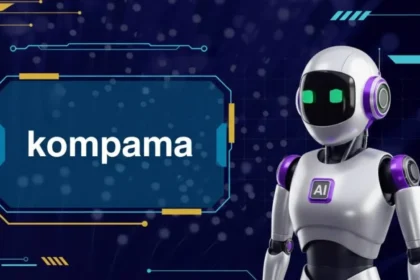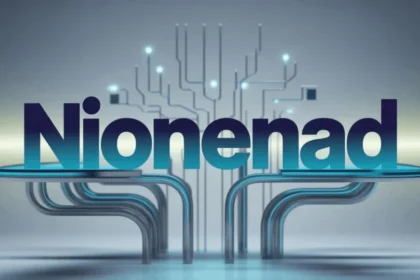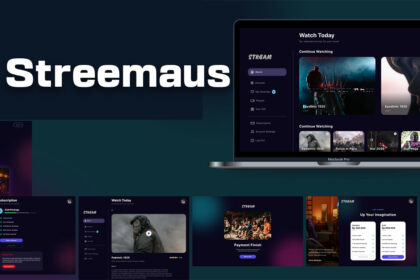For years, Quizlet has been the go-to study tool for millions of students around the world. With its interactive flashcards, games, and practice tests, it has reshaped how learners prepare for exams and retain knowledge. However, as education technology evolves, more platforms have emerged, offering unique features, improved user experiences, and in some cases, lower costs or ad-free environments.
Whether you’re a student cramming for finals, a language learner building vocabulary, or a teacher creating interactive lessons, there are many Quizlet alternatives that can meet your needs. This article dives into the best alternatives, explaining their features, advantages, drawbacks, and who they’re best suited for.
Why Students Seek Quizlet Alternatives
Although Quizlet remains popular, there are valid reasons why learners and educators may explore other platforms:
-
Subscription Costs – Quizlet has shifted many of its best features into Quizlet Plus, requiring users to pay for advanced modes.
-
Limited Free Version – The free plan often includes ads, limited study modes, and fewer custom options.
-
Different Learning Preferences – Not everyone learns best with flashcards alone; some prefer spaced repetition, gamification, or multimedia lessons.
-
Privacy Concerns – Students and teachers alike may prefer platforms that handle data differently.
-
Variety and Engagement – Exploring new tools can make studying less monotonous and more effective.
Fortunately, the edtech space is full of alternatives. Let’s take a closer look at the leading ones.
1. Anki
Anki is one of the most powerful flashcard apps, particularly loved by medical and law students. Its strength lies in spaced repetition, a method proven to boost long-term memory.
-
Features:
-
Spaced repetition system (SRS) automatically prioritizes difficult cards.
-
Multimedia support (audio, images, video, and LaTeX for math/science).
-
Highly customizable decks and add-ons from its open-source community.
-
-
Pros:
-
Free on most platforms (small cost for iOS).
-
Huge community with thousands of pre-made decks.
-
Perfect for long-term retention.
-
-
Cons:
-
Interface is outdated.
-
Steep learning curve for beginners.
-
Best for: Serious learners who want maximum memorization efficiency.
2. Brainscape
Brainscape takes flashcards to the next level by combining sleek design with a smart spaced repetition algorithm.
-
Features:
-
Confidence-based learning: students rate their knowledge after each card.
-
Professional decks available in subjects like languages, finance, and science.
-
Works smoothly across desktop and mobile devices.
-
-
Pros:
-
Clean, modern interface.
-
Adaptive learning increases efficiency.
-
Easy for teachers to create and share decks.
-
-
Cons:
-
Free plan is limited.
-
Premium subscription can be costly.
-
Best for: Students who want a balance between simplicity and adaptive learning.
3. Memrise
Memrise focuses heavily on language learning but is also useful for general memorization. Its biggest advantage is gamification and real-world immersion.
-
Features:
-
Thousands of courses across languages.
-
Native speaker video clips to practice pronunciation.
-
Game-like approach with streaks and challenges.
-
-
Pros:
-
Fun and engaging.
-
Great for vocabulary and conversation practice.
-
Mobile-friendly.
-
-
Cons:
-
Less suitable for non-language subjects.
-
Full features require a subscription.
-
Best for: Language learners who want interactive and immersive study sessions.
4. Cram
Cram is a straightforward flashcard platform with an enormous public library. With more than 190 million user-created cards, it’s a quick alternative to Quizlet.
-
Features:
-
Millions of decks in almost every subject.
-
Study modes include “Cram mode” for last-minute review.
-
Mobile app for studying anywhere.
-
-
Pros:
-
Extensive database of pre-made cards.
-
Free with basic functionality.
-
Simple to use.
-
-
Cons:
-
Lacks advanced spaced repetition features.
-
Ads may interrupt study sessions.
-
Best for: Students who want quick access to ready-made flashcards.
5. Kahoot!
Kahoot! is best known as a game-based learning platform that makes studying fun and competitive.
-
Features:
-
Teachers and students create quizzes in seconds.
-
Real-time multiplayer games with leaderboards.
-
Supports images, videos, and music for more interactive lessons.
-
-
Pros:
-
Incredibly engaging in classroom environments.
-
Encourages collaboration and participation.
-
Works on almost any device.
-
-
Cons:
-
Requires internet connection.
-
Not ideal for independent studying.
-
Best for: Classrooms, group study sessions, and teachers who want to boost engagement.
6. StudyBlue
StudyBlue blends flashcards with progress tracking, making it a useful alternative for motivated students.
-
Features:
-
Create custom flashcards with text, images, and audio.
-
Track study progress and performance.
-
Access shared decks from other students.
-
-
Pros:
-
Personalized study tools.
-
Community-driven content.
-
Progress tracking keeps learners accountable.
-
-
Cons:
-
Some features locked behind a paywall.
-
Not as polished as newer apps.
-
Best for: Students who want both self-created cards and access to community resources.
7. Chegg Prep
Chegg Prep is a completely free flashcard platform backed by the educational giant Chegg.
-
Features:
-
Millions of flashcards across different subjects.
-
Simple, clutter-free interface.
-
100% free to use.
-
-
Pros:
-
No cost, no hidden paywalls.
-
Easy to use for quick study.
-
Supports custom flashcards.
-
-
Cons:
-
Lacks advanced features like spaced repetition.
-
No gamification elements.
-
Best for: Learners looking for a free, no-frills Quizlet alternative.
8. Quizizz
Quizizz combines quizzes and gamification with the flexibility of solo study and group learning.
-
Features:
-
Quizzes can be assigned as homework or played live.
-
Leaderboards, memes, and themes for fun.
-
Performance analytics for teachers and students.
-
-
Pros:
-
Great for both classrooms and individuals.
-
Fun and engaging with lots of customization.
-
Free plan offers robust features.
-
-
Cons:
-
Overwhelming for those seeking just flashcards.
-
Requires stable internet connection.
-
Best for: Teachers and students who thrive on interactive, competitive learning.
9. TinyCards (by Duolingo, legacy mention)
Although Duolingo’s TinyCards was discontinued, many learners still search for it as an alternative to Quizlet. While it’s no longer active, its legacy lives on in Duolingo’s in-app flashcard-style learning.
Best for: Language learners already using Duolingo.
How to Choose the Right Alternative
The best Quizlet alternative depends on your specific needs:
-
For Memorization Power → Anki, Brainscape
-
For Language Learning → Memrise, Duolingo
-
For Classroom Games → Kahoot!, Quizizz
-
For Free Flashcards → Chegg Prep, Cram
-
For Progress Tracking → StudyBlue
When choosing, consider:
-
Learning style (structured repetition, gamification, quick reviews).
-
Budget (free vs subscription).
-
Collaboration (solo study vs classroom).
-
Device compatibility (desktop, mobile, offline use).
Conclusion
Quizlet remains a solid study tool, but it’s no longer the only option for learners seeking efficiency and engagement. Whether you’re preparing for standardized tests, learning a new language, or teaching a classroom full of students, there are alternatives that may suit your style better.
-
Anki and Brainscape shine in long-term memorization.
-
Memrise and Duolingo make language learning fun.
-
Kahoot! and Quizizz turn studying into a game.
-
Chegg Prep and Cram offer quick and free flashcard access.
Exploring these alternatives can help you find the perfect platform that matches your study habits and goals. With the right tool, learning doesn’t just become easier—it becomes more enjoyable, interactive, and effective.





